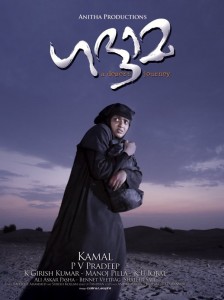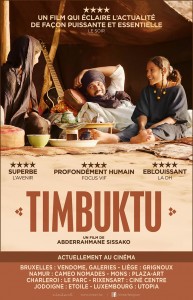The Kerala “Gulf Boom” refers to the mass migration of a large number of people from the Indian state of Kerala to the Gulf Countries from 1972 to 1983. The movement of many migrant workers from Kerala to the Gulf Countries continues to the present day. By 2008, the Gulf countries contained a total Keralite population of more than 2.5 million, who annually send home a sum of around $ 6.81 billion (US), which was more than 15% of the total Remittance to India in 2008. And were 15 to 18 times the size of foreign exchange earned from the export of cashew and marine products. Forty-two per cent of Malayalis in the Gulf countries are Muslims.
Director Kamal, in two of his critically acclaimed movies, based on true stories, gives us the Muslim women’s side of the Gulf Boom story, from both sides.
Gadhamma (“Housemaid”) showcases the life of a Muslim woman who is employed as maid-servant in a wealthy Arab household and falls prey to Saudi Arabia’s modern slavery. Perumazhakkalam (“The season of heavy rains”) depicts the plight of Gulf wives, predominantly Muslims, who are left behind in Kerala, while their husbands work abroad.
Both the movies have Saudi Arabia, and its Shariah rule, as their background.
Gadhamma

In this film, a lower-middle-class Malayali widow, Aswathy, reaches Saudi Arabia, to work as a housemaid. Her employers are abusive, make her discard all contacts with her family back in Kerala, and stop paying her salary.
She escapes the house but lands up with a bunch of goons, from whom she is saved and given abode by a fellow Malayali only to be imprisoned by the Mutaween (Saudi Arabia’s moral police), and flagellated for living with an non-mahram man. Once she serves out her sentence, she is deported back home. What happens to Ashwathy once she returns is unclear, as most maids return back to Gulf when they realize they have no means of survival back in Kerala.
As director, Kamal states in an interview that he “mellowed down” the plight of an expatriate maidservant (which, he says, “is worse than what is portrayed”), and that takes away a little bit from the impact the movie could have made. This being said, it brings light to the extensive violation of human rights which takes place in the lower class expatriate society in Middle Eastern countries. For example, the vulnerability of the unskilled laborers, under the Kafala system, which is likened to modern day slavery. The system requires all laborers to have an in-country sponsor, usually their employer, who is responsible for their visa and legal status. This makes it possible for the employers to abuse and confine their housemaids, and exploit them with no legal consequences.
In one scene, Ashwathy is dressed in a hijab and niqab, while she is kidnapped by goons, on the pretext of giving her a lift in their vehicle. They discuss among themselves about sexually abusing her, which breaks the common notion that wearing a hijab necessarily asexualizes women.
The movie was banned for viewing across all Middle Eastern countries, due to its negative depiction of all Gulf countries.
Perumazhakkalam
While Gadhamma primarily shows the life of an expatriate, Perumazhakkalam, shows the other side of the spectrum, the plight of the Gulf wife, the woman who lives separately from her husband, who is employed in a Gulf country, returning usually for a short vacation once every two or three years. Here, the protagonist Gulf wife is Razia, also known as Mailanji, because of her expertise in applying Mehndi hand designs. Her husband Akbar works in Saudi Arabia, and news reaches her that Akbar is charged with murder of a fellow Malayali expatriate, Raghu, a Hindu, while in Saudi Arabia, and is facing the death penalty.
Akbar’s friend, Jose, visits from Saudi Arabia, and brings Razia a ray of hope, when he mentions that under the Sharia law for murder, Akbar could be freed if they could get a letter of mercy from Raghu’s wife, Ganga, saying that she forgives her husband’s murderer.

Following this, starts Razia’s unrelenting effort to get Ganga to sign the mercy petition. While Raghu’s parents and brothers are not willing to sign the petition, Ganga, out of kindness, goes out of her way to sign the document, only to be ostracized from her Brahmin society and husband’s home. Akbar is spared his death sentence and is relieved from prison during Ramadan, as is a practice in Middle Eastern countries . He returns home to thank Ganga for her mercy. Ganga is seen as an independent woman, who runs a humble snacks business, but is happier there than within the confines of her husband’s home.
The movie stands out in many respects, as it is shown solely from the women’s perspective.
Razia is a Muslim woman, while Ganga is a Brahmin Hindu woman. These are two religions, which though live in tolerance in Kerala, are poles apart when it comes to rituals and beliefs. While Islam is widely considered to be oppressive to women, this movie depicts Hinduism to be much harsher, especially to widows. Ganga’s bangles are broken, and her ornaments are removed, and she is only supposed to dress in white after her husband’s death. She is also prohibited from attending auspicious occasions like marriages, and secluded to live within the confines of her husband’s home.
The patriarchal system leaves her with much less support than her Muslim counterpart Razia, who, though in a black burkha, is wholeheartedly supported by her family. Razia also enjoys the privilege of living in her parents’ house, as against the common practice in India, where wives are supposed to stay in the husband’s house post-marriage. This practice was built to protect Gulf wives, who spent most of their young adult life separated from their husbands, to live in the security of their own homes.
Kamal depicts Muslim women as they are, in both his movies, as true to life as it can get. The movies felt like a mirror held to the society in which I have lived and grown up. They have their plights and sorrows, but they are resilient, as are all women. Both Razia and Aswathy spend most of their life waiting. Waiting for their husbands to return, or waiting to return home for their lives to start. Most of the women in my home are Gulf wives, hence this movie strongly resonated with me, personally. Most of these women are sometimes only known for their Mehndi skills like Razia and/or for their domestic skills like Aswathy, but tragedy brings out their strength.












